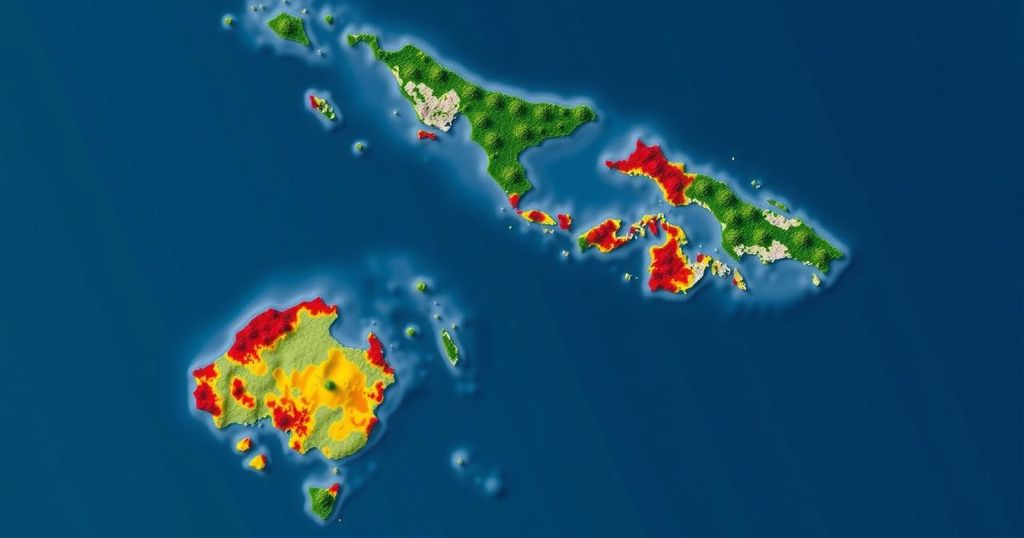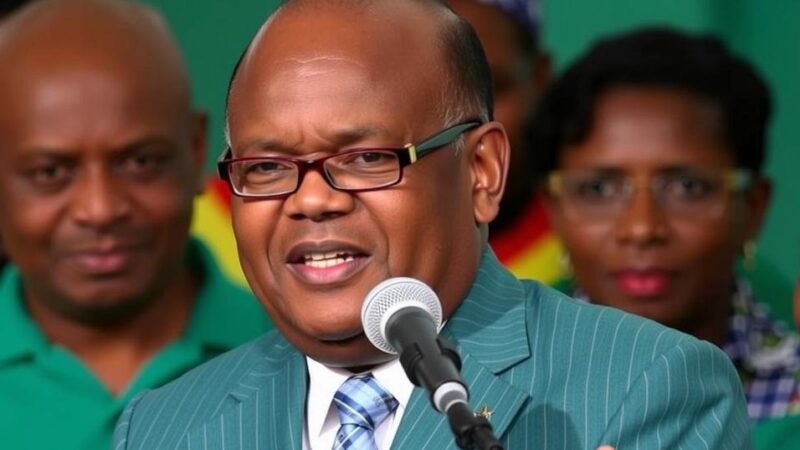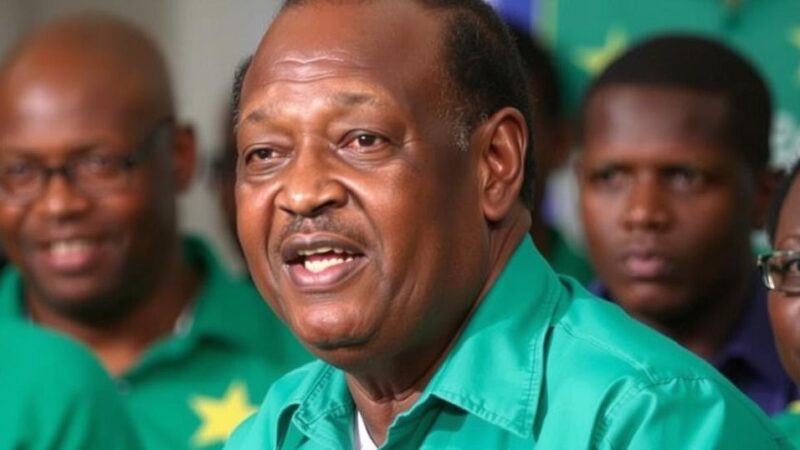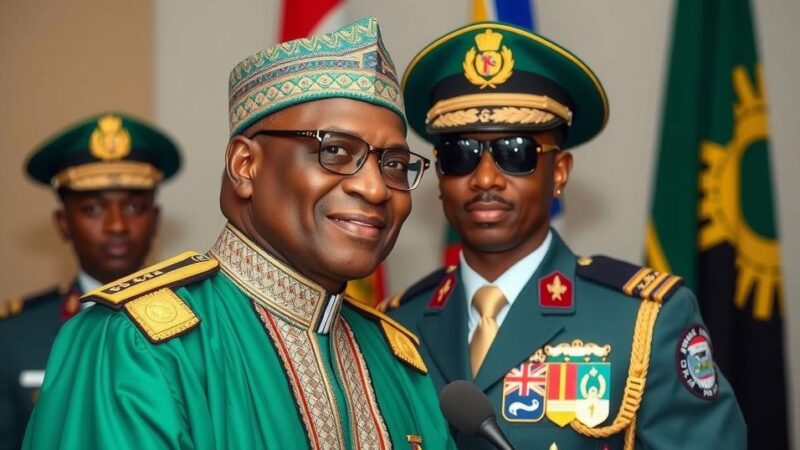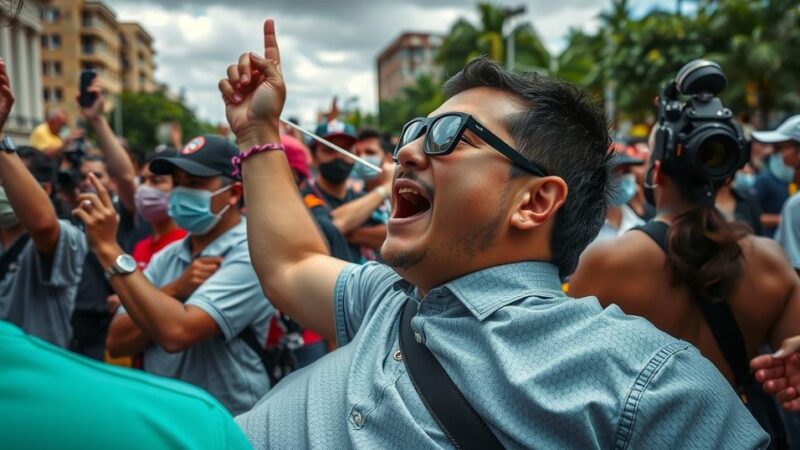On October 14, 2024, Papua New Guinea’s Conservation and Environmental Protection Authority launched 23 National Biodiversity Targets aligned with the Global Biodiversity Framework, facilitating sustainable environmental management and conservation efforts. This initiative, supported by UNDP, sets the stage for the upcoming COP16 in Bogota, Colombia, where these targets will be further discussed and evaluated. Key stakeholders will collaborate to ensure effective implementation and funding for these targets, showcasing the country’s commitment to biodiversity preservation.
On October 14, 2024, the Conservation and Environmental Protection Authority (CEPA) of Papua New Guinea achieved a significant milestone by officially unveiling its 23 National Biodiversity Targets. These targets are structured to align with the commitments set forth in the Kunming-Montreal Global Biodiversity Framework under the Convention on Biodiversity. This initiative is particularly timely as Papua New Guinea prepares for its participation in the 2024 United Nations Biodiversity Conference of the Parties (COP16) scheduled to take place later this month in Bogota, Colombia. Through the Global Environment Facility’s Early Action Support Project, the United Nations Development Programme (UNDP) has provided substantial assistance to CEPA in establishing these National Biodiversity Targets and outlining the necessary 195 actions and policy measures required for their achievement. During a press conference to announce the targets, Mr. Jude Tukuliya, the Managing Director of CEPA, expressed gratitude towards the commitment and teamwork displayed by CEPA officers, government colleagues, conservation NGOs, civil society organizations, and international experts. Mr. Tukuliya remarked, “I am very pleased with the hard work, time and dedication put into this by my CEPA officers together with colleagues from other Government agencies, conservation NGOs, civil society, as well as international experts. This has been no easy feat. We know what needs to be done to protect PNG’s biodiversity, and we now need to find the means to achieve it.” The Convention on Biodiversity, established in 1993 following the Rio Earth Summit, serves as the international legal instrument devoted to the conservation of biological diversity, sustainable utilization of its components, and equitable sharing of benefits derived from genetic resources. The governing body of this Convention, known as the Conference of the Parties (COP), convenes biennially to evaluate progress, establish priorities, and commit to work plans. The Kunming-Montreal Global Biodiversity Framework, adopted during COP15, outlines a bold path toward a sustainable future through 23 global targets, facilitating the vision of a world coexisting harmoniously with nature by 2050. Notably, COP16 marks the first opportunity for governments to assess their progress in implementing the GBF and to evaluate the alignment of their National Biodiversity Strategies and Action Plans (NBSAP) with this framework. Akiko Yamamoto, UNDP’s Regional Team Leader for Environment and Energy in Asia and the Pacific, emphasized the significance of these aligned targets, noting, “We are proud to support CEPA with the aligned National Biodiversity Targets as part of the country’s green economy transition. UNDP will continue to provide support to CEPA and the Government of PNG through our new global initiative, the ‘Nature Pledge.’” As part of this initiative, two new projects will be launched to explore financing avenues for these targets and to aid in developing the next NBSAP as the guiding framework for conservation efforts until 2030. To prepare for COP16, CEPA has also collaborated with the European Union-funded Forestry-Climate Change-Biodiversity (FCCB) programme to establish a Government Delegation equipped with the expertise necessary to engage effectively with other parties at COP16. For the first time, Papua New Guinea will also host three side events at COP, showcasing its commitment to nature and biodiversity, sustainable conservation commodities, and the National Forest Monitoring System (NFMS). Mr. Alaric Vandenberghe, the EU-FCCB Project Manager for Expertise France, stated, “Upon returning from COP16, a workshop will be organized for the PNG Delegates and the key relevant Government institutions to discuss strategic direction and translate COP16 outcomes into action for PNG.” This workshop will serve to reflect on and explore new resolutions and commitments emerging from COP16, ensuring that Papua New Guinea’s biodiversity initiatives align closely with the Global Biodiversity Framework. The National Biodiversity Targets were officially launched on the CBD Website on October 14, and the delegation from Papua New Guinea will depart for COP16 on October 15, 2024.
Papua New Guinea’s commitment to biodiversity and environmental conservation is defined by its alignment with the Global Biodiversity Framework, particularly in the lead-up to COP16. This alignment highlights the nation’s intention to meet international standards for biodiversity conservation and sustainable resource management. The established targets are critical for guiding actions toward achieving sustainable environmental management and engaging effectively in global discussions on biodiversity rights and responsibilities. The formation of these targets, followed by a detailed outline of required actions, positions Papua New Guinea as a proactive participant in international biodiversity efforts.
In conclusion, Papua New Guinea’s launch of its 23 National Biodiversity Targets marks a pivotal step in aligning its efforts with the Global Biodiversity Framework. This initiative, bolstered by support from UNDP and partnerships with various stakeholders, underscores the nation’s commitment to sustainable environmental management and biodiversity conservation. As the country prepares for COP16, the insights gained and actions agreed upon will be essential in guiding future conservation strategies and reinforcing Papua New Guinea’s role in global biodiversity discussions.
Original Source: www.undp.org

